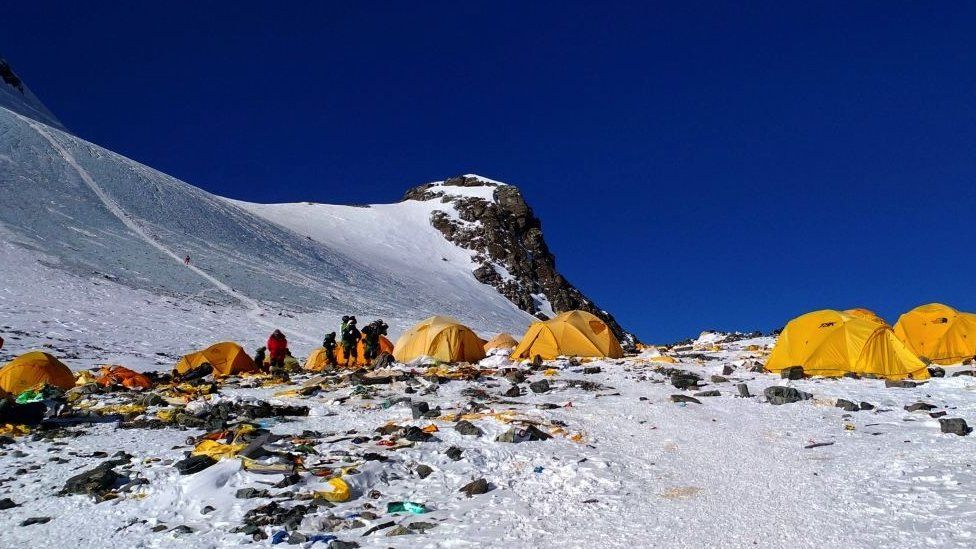-

-
-
Loading

Loading

Authorities have announced that climbers attempting to scale Mount Everest will now be required to clean up their own waste and bring it back to base camp for disposal. The new rule has been introduced as part of a wider set of measures aimed at addressing the growing issue of waste on the mountain. Extreme temperatures prevent excrement from fully degrading, resulting in visible human stools on rocks and causing climbers to fall ill. Climbers will now be ordered to purchase "poo bags" at base camp, which will be checked upon their return. While climbers spend most of their time at base camp acclimatizing to the altitude, separate tents are set up as toilets, with barrels underneath to collect waste. However, as climbers move higher up the mountain, finding suitable locations for waste disposal becomes challenging. Rubbish, including human excrement, remains a significant problem on Everest, prompting clean-up campaigns led by organizations like the Nepali Army. Estimates suggest that between camp one and camp four, there are around three tonnes of human waste, half of which accumulates at South Col, the base before summit attempts. The Sagarmatha Pollution Control Committee has procured 8,000 poo bags from the United States for the upcoming climbing season. These bags contain chemicals and powders that solidify waste and make it odorless. Each climber will receive two bags, each of which can be used five to six times. This initiative has been successfully implemented on other mountains, such as Mount Denali, and is expected to help clean up Mount Everest. The Pasang Lhamu rural municipality is determined to ensure the proper implementation of these measures by establishing a contact office at base camp. This move aims to address the long-standing issue of irregularities, including climbers ascending without permits.